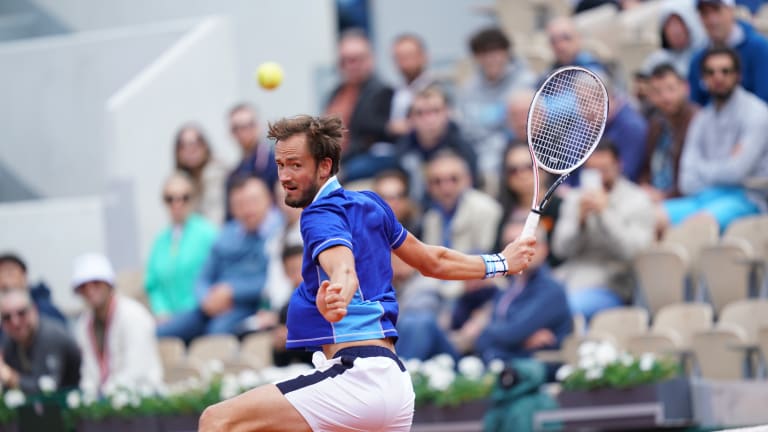Roland Garros
“Different” clay affords Daniil Medvedev major opportunity at Roland Garros
By May 24, 2022Roland Garros
Rafael Nadal to be honored with 'exceptional' tribute on opening day of Roland Garros
By Apr 17, 2025Roland Garros
French Open organizers introduce draw to access ticket sales
By Jan 07, 2025Roland Garros
Coaches Corner: Juan Carlos Ferrero proves essential to Carlos Alcaraz's Roland Garros success
By Jun 14, 2024Roland Garros
What’s next for Novak and Nadal? Four ATP storylines after the Paris fortnight
By Jun 10, 2024Roland Garros
Naomi’s resurgence, Iga on grass: Four WTA storylines after the Paris fortnight
By Jun 10, 2024Roland Garros
Carlos Alcaraz becomes the clay-court champion that he—and we—always knew was possible
By Jun 09, 2024Roland Garros
Coco Gauff wins first Grand Slam doubles title with Katerina Siniakova in dream team debut
By Jun 09, 2024Roland Garros
Coco Gauff is a Grand Slam champion in singles and doubles, exceeding her own expectations
By Jun 09, 2024Roland Garros
From Rafa to Iga: as one owner of Roland Garros departs, a new one has moved in
By Jun 08, 2024“Different” clay affords Daniil Medvedev major opportunity at Roland Garros
Though the No. 2 seed may not be a natural dirtballer, Medvedev favors the Paris conditions enough to build on his quarterfinal finish from last year.
Published May 24, 2022
Advertising
Advertising

The Roland Garros clay hasn't made Medvedev a different player, but instead one who can better deal with adversity.
© Nicolas Gouhier / FFT